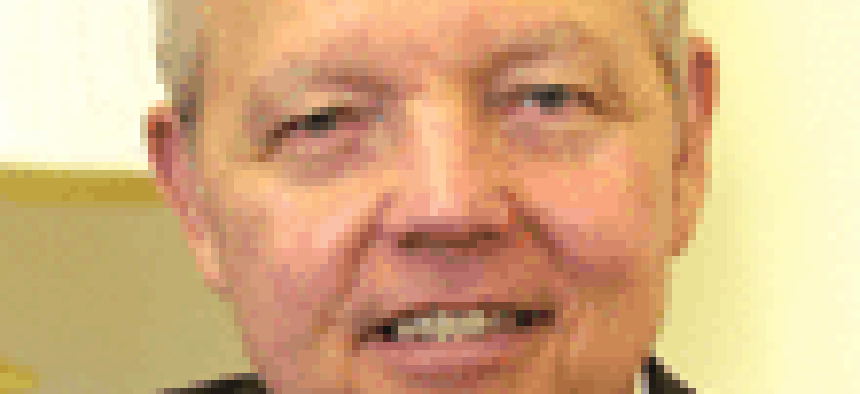Survival Guide: John Koskinen, D.C. deputy mayor and city administrator

John Koskinen specializes in helping organizations run smoothly.
John Koskinen specializes in helping organizations run smoothly. He worked for 21 years for the Palmieri Co,. helping large, troubled operating companies stand on their feet once again. After that, he was tapped by the Clinton administration to serve as deputy director of the Office of Management and Budget from 1994 to 1997, overseeing such thorny issues as regulations, information and procurement policy and financial management practices. From 1998 to 2000, Koskinen led the federal government's year 2000 conversion effort. Since then, he has served as deputy mayor and city administrator of the District of Columbia, helping the city regain control of its destiny by ending five court-ordered receiverships. Koskinen spoke with Staff Writer William Welsh about effectively managing public- and private-sector organizations. What are some of the universal principles for the successful operation of a large organization? One is that the people who know the most about an organization often are those who work on the front lines. If you reach out to them and engage them in discussions about what the present operations are, and what the obstacles to improvements are, you will get some of the best information. [Another principle] is that a group of people will always make a better decision than any individual member of that group would alone. In the federal government and in the District of Columbia, I've created a lot of cross-agency working groups, task forces and committees, and I've always found them to be extremely productive. What lessons did you learn overseeing the year 2000 conversion? There was a push by some [members of Congress] that we should take responsibility ? "own the problem" ? for the private sector. I noted there was no way we could do this, because we didn't have the statutory or legal authority. Our role was not to tell people what to do; our role was to facilitate the work that people were going to do on their own. The contribution that the White House could make was [to serve] as the convening authority. We could serve as an honest broker, get industries and agencies to work together, and get people to share information across company, industry and national lines. What differences have you noticed between how federal government and local government operate? The major difference ... is the federal government is two levels removed from reality, because the work is being done at the state and local level. At the federal level, unless you're in a war where things are instantaneous, if you make a decision today, tomorrow or next week, the difference isn't noticeable. It's important to get a decision made, but there is a pace that is very different at the local level where the problems are immediate, unrelenting and around the clock. At the local level, people are under the gun to be in touch with what is going on, and be able to respond quickly and solve problems right now. What advice can you give contractors that want to work with city governments? I've always felt that contractors and consultants are as good as the oversight they are provided. There needs to be an effective dialogue between the contractor and the client to make sure that people understand what they are going to get for what the statement of work and the money is buying. The more successful contractors spend some time making sure that what is being delivered is what [the customer] wants. How well would Washington be able to cope with an electricity blackout similar to the one that occurred last month in the Northeast? Washington is like all cities. After all of the contingency planning for Y2K and all the emergency planning after Sept. 11, 2001, I think everybody's state of readiness is much higher and better than it was three or four years ago. When we got notice of the rolling blackouts in the Northeast, we immediately triggered our emergency response process. As part of our emergency preparedness, we've already ensured that we have backup generators in all critical facilities, we've got alternate communications networks, we've identified 100 critical intersections, and the police are trained to immediately respond to those organizations to avoid gridlock. We have a much better communications situation for deciding how and when to let employees leave the city. If the power disappears, it will be a big problem, but we can provide critical emergency services in the face of fairly substantial outages such as that.

WT:
Koskinen:
WT:
Koskinen:
WT:
Koskinen:
WT:
Koskinen:
WT:
Koskinen:

John Koskinen
Olivier Douliery
WT:
Koskinen:
WT:
Koskinen:
WT:
Koskinen:
WT:
Koskinen:
WT:
Koskinen:

